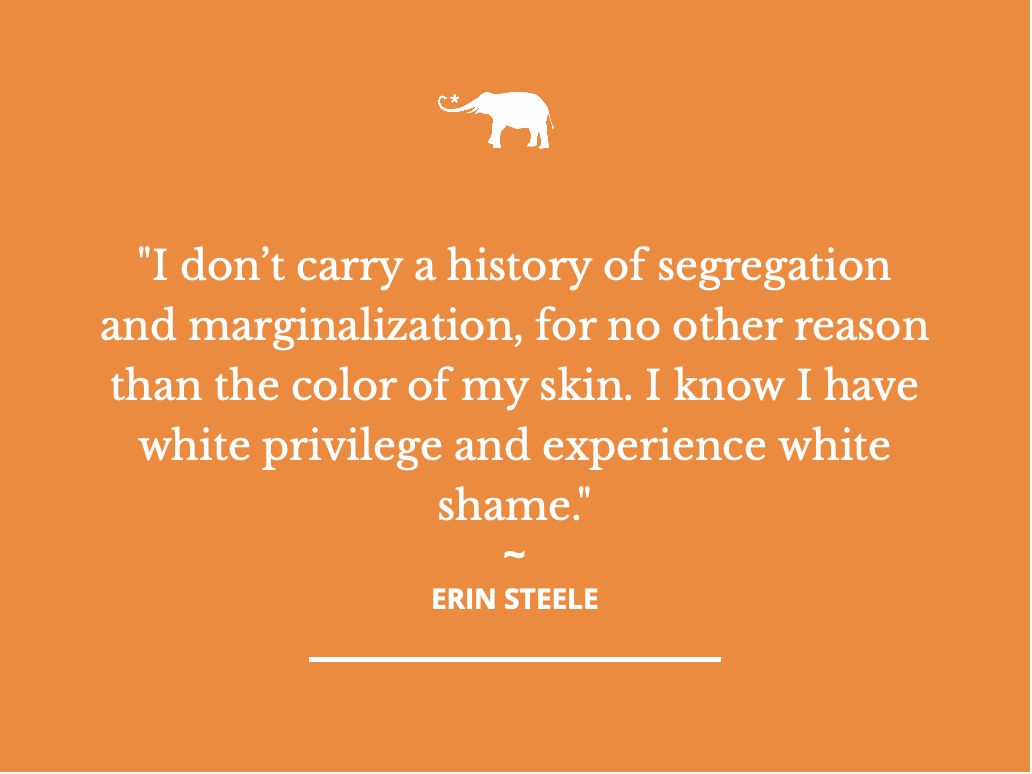Recently, I asked one of my clients what the experience is like for them to see a white therapist.
This question is always in the background with people of colour clients, but only comes out after a story is shared with me about how race and inequality has affected them.
Why only then?
When race comes up during a session, I find myself listening even harder. I wonder, what might that action mean. I try to put myself deeply in their shoes, which I know is fundamentally not possible.
I become transported to what it might be like to not be heard or understood, denied access to healthcare and education, live with a history of chronic segregation and suppression, and experience what they have experienced.
I contrast this to my experiences, and discover the valley between us is so deep and wide on many levels.
I then turn to my stories of abuse and experiences with the police, and from that small narrative I can connect on a deeper level, but only in a small way.
I too have not felt heard by the police, and have been dismissed as if I was making a big deal out of nothing. I too have had plenty of experiences with patriarchy and misogyny, although nowhere near what my clients have faced under the intersection of race and inequality.
A lot is happening in my mind during every therapy session. I continually learn and grow from each session. When I meet with people of colour, and sometimes white clients, on the daily, I further recognize how racism and different phobias were part of how I was raised: my culture and experience as a white, heterosexual, cisgender woman.
I don’t want to continue that thread. I want to interrupt it. But, I know this will be a lifelong work of protest and continuous introspection.
Even though I will never fully know what my clients’ experience feels or has been like, I aways find myself silently recognizing how I have inherently and automatically been given more access to education, healthcare, jobs, money, and an overall systemic safety from being judged and suppressed.
I don’t carry a history of segregation and marginalization, for no other reason than the color of my skin.
I know I have white privilege and experience white shame.
This is not the first time I’ve asked clients who are people of color what the experience is like for them to see a white therapist. The responses are always varied but usually start with being unsure about me when they learned I was white, but they wanted to give me a chance. What does that say? That question takes me into a hundred different directions. Think about it. Where does that question take you?
The answer to my question always seems to end in the same place—they feel heard and not judged even though they intrinsically know I have not experienced the same marginalization that they have. Shame then shows up for me, as I’m not looking for accolades. I’m looking to understand their experience to see what I can do better (still white shame?).
In my opinion, it is imperative for white therapists to continuously evaluate their personal biases and where those embedded beliefs might have come from and why. We need to do this not just once, but every time we sit with a person of color.
Reading a book on anti-racism is something we should all do, as white therapists inherently represent a facet of society that has suppressed and held back people of colour clients over hundreds of years through Western colonial expansion. It doesn’t matter if we have had difficult experiences in life—those experiences will never be quite as hard as what our people of colour clients have endured.
I would encourage you to watch the video embedded in the article by Robin DiAngelo.
She says, “These conversations are critical because, by virtually every measure, racial inequality persists, and institutions continue to be overwhelmingly controlled by white people. While most of us see ourselves as ‘not racist,’ we continue to reproduce racist outcomes and live segregated lives.”
I am deeply honored to work with people of color who are willing to allow me a peek into their lives. (Is that performative?)
For me, I can only imagine how difficult my clients’ lived experiences have been. Bottom line, life has been harder for them. And that, my friends, is an irrefutable fact.
What might you do today to dismantle what you’ve been taught, to what you’ve been taught about operating in the world as white person? Who might you become if you begin to acknowledge your inherent power in the room as a white therapist? While there is so much more to say and deconstruct, I believe that change can begin in those micro-moments.
~












Read 3 comments and reply